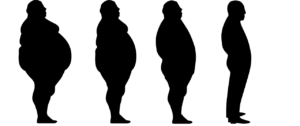
Cardio Exercise: A Comprehensive Guide to Losing Weight and Improving Health
At some point, you’ve probably heard that cardio exercise is essential for weight loss and improving overall health. But what exactly is cardio, and how does it help reduce weight? In this article, we’ll explore the ins and outs of cardio exercise, its pros and cons, and extended cardio activity. We will also provide you with useful tips to help you incorporate cardio into your daily routine effectively.
What is Cardio Exercise?
Cardio exercise, also known as aerobic exercise, is any activity that increases your heart rate and breathing rate for an extended period. It can include activities such as brisk walking, running, cycling, swimming, and dancing. During cardio exercise, your body burns calories, which can lead to weight loss. It also strengthens your heart and lungs, improves circulation, and reduces your risk of chronic diseases such as diabetes, heart disease, and stroke.
How Does Cardio Exercise Help Reduce Weight?
Cardio exercise can help you lose weight by burning calories. When you engage in cardio exercise, your body burns stored fat for energy. The more intense the activity, the more calories you burn. According to a study, a 150-pound person can burn up to 270 calories by running at 5mph for 30 minutes. When combined with a healthy diet, cardio exercise can help you lose weight and keep it off.
Pros of Cardio Exercise
- Weight Loss: As discussed, cardio exercise helps burn calories, leading to weight loss.
- Heart Health: Cardio exercise strengthens your heart and reduces the risk of heart disease.
- Mood Boost: Cardio exercise releases endorphins, which can improve your mood and reduce stress and anxiety.
- Better Sleep: Regular cardio exercise can improve sleep quality, helping you feel more rested and energized.
Cons of Cardio Exercise
- Joint Impact: High-impact cardio activities such as running can put stress on your joints, leading to injury.
- Time-Consuming: Cardio exercise can be time-consuming, especially if you have a busy schedule.
- Plateau Effect: Your body can adapt to cardio exercise, leading to a plateau in weight loss.
Extended Cardio Activity
Extended cardio activity refers to performing cardio exercise for an extended period, such as 150 minutes of moderate-intensity aerobic activity or 75 minutes of vigorous-intensity aerobic activity every week [1]. Extended cardio activity has additional benefits, including:
- Lower Blood Pressure: Extended cardio exercise can lower blood pressure, reducing the risk of heart disease.
- Reduced Inflammation: Extended cardio exercise can reduce inflammation, leading to a reduced risk of chronic diseases.
- Improved Brain Function: Extended cardio exercise has been linked to improved brain function and a reduced risk of dementia [2].
Tips for Effective Cardio Exercise
- Start Slow: If you’re new to cardio exercise, start slow and gradually increase intensity and duration.
- Mix it Up: Incorporate a variety of cardio activities to prevent boredom and avoid the plateau effect.
- Listen to Your Body: Pay attention to your body and adjust your workout intensity accordingly.
- Set Realistic Goals: Set achievable goals and track your progress to stay motivated.
Conclusion
Cardio exercise is an essential component of a healthy lifestyle. It can help you lose weight, strengthen your heart and lungs, and reduce the risk of chronic diseases. While there are some cons, such as joint impact and time consumption, the pros of cardio exercise outweigh the





